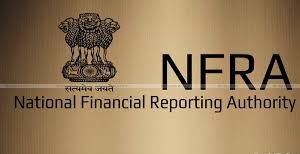@JUDGMENTTAG-ORDER
Honourable Mr. Justice K. Chandru
1. A shocking state of affairs is found reflected in the writ petitions. The petitioners have filed the present writ petitions challenging the order of suspension made by the third respondent, Principal of a self-financing engineering College at Kidaripatti, Madurai District. By the impugned orders, the petitioners were suspended.
2. The charges imposed against the petitioners were that on 09.02.2011 around 9.45 a.m. the petitioners trespassed into a class room and despite being prevented by the HOD who were taking classes, they entered into the class room and abused the college lecturers in bad words. When the other teachers and non teaching staffs came to prevent the incident, they were attacked by the petitioners. The petitioners have also caused extensive damage to the properties of the college and have caused disturbances to other students.
3. Due to the attack made by the petitioners, some of the teachers have grievously injured and were admitted to the hospital and kept under an ICU. In the light of this and in the interest of the other students, until further orders, the petitioners were suspended with effect from 10.02.2011. Challenging the said orders, the writ petitions came to be filed.
4. This Court without admitting the writ petitions, ordered private notices to the respondents 2 and 3. Pending the writ petitions an interim direction was granted to the petitioners to undergo internal examinations scheduled to be held from 17.02.2011 to 22.02.2011 and the conduct of the internal examinations was made subject to the result of the writ petitions and no equity could be raised by the petitioners on the basis of the interim order.
5. On notice from this Court, the third respondent Principal has filed a counter affidavit dated 19.10.2011. The incident that took place in the College was graphically described in paragraph number 3 of the counter affidavit. It is also stated that one of the lecturers, who was injured by name Prabhu, gave a complaint before the Malavalavu Police Station and the police have registered a criminal case in Cr.No.14 of 2011 for the offence under Sections 147, 148, 294B, 427, 323, 324, 336 and 506(ii) IPC against the petitioners. The injured Lecturer Mr.Prabhu, had sustained grievous injuries and his four teeth were broken. He is said to be still undergoing treatment.
6. It is also stated that another lecturer by name Rajesh Dravidamani and an office staff Subramanian were also sustained injuries and that case was also under investigation. The injured lecturer alone had given the complaint against the petitioners.
7. The Principal of the third respondent college was not able to say as to the further steps that he had taken. In the counter affidavit, the Principal merely stated in paragraph 8 that all the students are his students and they are in his control. He further stated that the teaching staff Prabhu, Rajesh Dravidamani and one official staff Subramani were sustained injuries only due to the attack by the petitioners. It is stated that though internal examinations were scheduled, they were suspended. But, on the basis of this Court''s direction, they were allowed to write the examinations. They have also written the examinations and are attending the classes.
8. It is further stated that the Vice Chancellor of the Anna University, who is the second respondent herein, conducted a meeting with the petitioners and their representatives and at the end of the meeting, as per the direction of the second respondent, in the interest of the students future, he allowed them to attend the classes continuously and they are attending the classes continuously.
9. As to the efficacy of the Court granting interim orders to permit the students having charges of indiscipline to writ examinations, the Supreme Court vide its decision in
12... Slackening the standard and judicial fiat to control the mode of education and examining system are detrimental to the efficient management of the education. The directions to the appellants to disobey the law is subversive of the rule of law, a breeding ground for corruption and feeding source for indiscipline. The High Court, therefore, committed manifest error in law, in exercising its prerogative power conferred under Article 226 of the Constitution, directing the appellants to permit the students to appear for the examination etc."
10. It is now stated by the third respondent that the writ petitions have become infructuous. When questioned about the same, the counsel appearing for the Principal, submitted that it is for this Court to decide and pass suitable orders. This kind of passing off the responsibility to some other authority has to be condemned. The Principal is the sole in-charge of the internal discipline of the college including the control over the students. If any action has to be taken, it has to be taken by the Principal of the College. It is the action taken by the Principal which is under challenge in these writ petitions. There is no question of this Court giving any unsolicited advice to the third respondent. It is for them to take a decision. But, on the basis of the counter affidavit and the shocking incident elaborated, this Court is unable to interfere with the impugned orders of suspension.
11. The Hon''ble Supreme Court in this regard dealt with student discipline inside the campus and emphasised taking proper steps thereby preventing acts including ragging, which is termed as a criminal offence. The Principal was vicariously responsible if any incidents are reported to the authorities. The third respondent had to decide the issue and he cannot request this Court to pass orders. This Court will have to proceed only on the basis of the pleadings submitted before this Court. In view of the incidents narrated in the suspension orders and also supported by a counter affidavit, there is no case for interfering with the impugned orders of suspension. Hence, the writ petitions stand dismissed. Consequently, connected miscellaneous petitions are closed. No costs.

